List of Authors
>>About this blog
Recent blog post
|
[Mumin]
September 26, 2013 17:45
On the first floor of the Daishi Tokyo Building (owned by Daishi Bank in Niigata), opposite the street of Nihonbashi Mitsukoshi Department Store, there is an event floor called "Bridge Niigata".
This is a bridge that was created to connect Niigata's power to various parts of Japan and to the world.
From September 24th to 30th, an event called "Kimono in Tokamachi that Enjoys Autumn" is being held. Tokamachi is one of Japan's leading textile towns, and this time, Kihadaya, a dyeing and weaving workshop in Tokamachi, is exhibiting and selling Niigata's textiles in general.
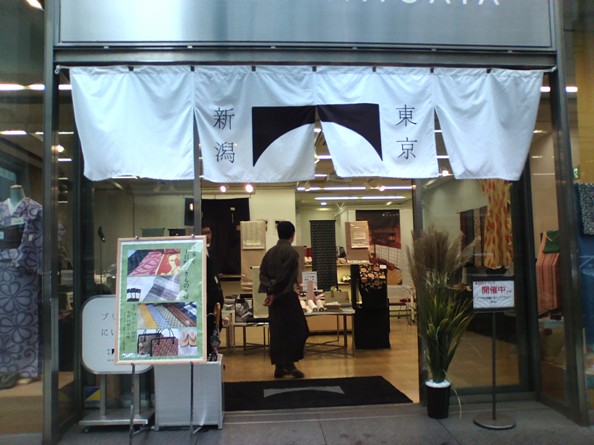 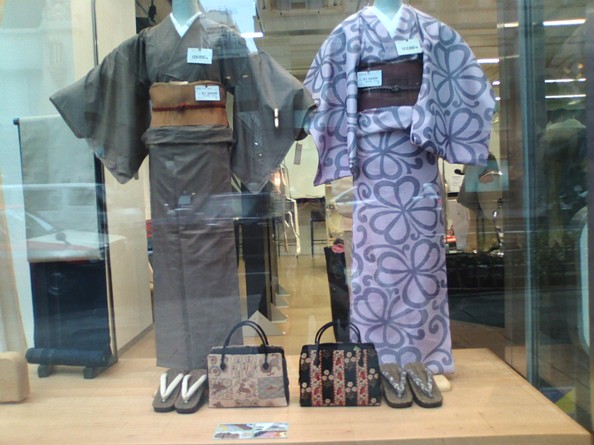 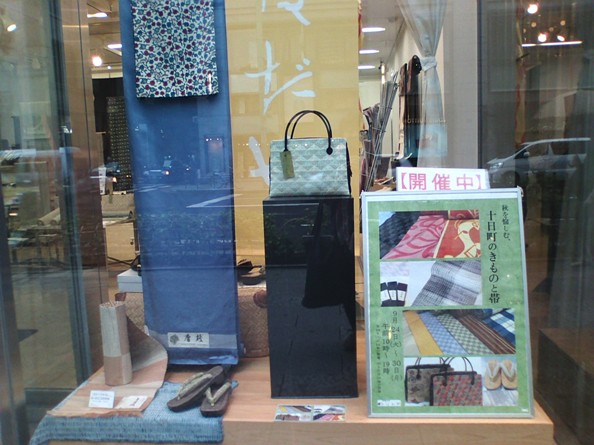 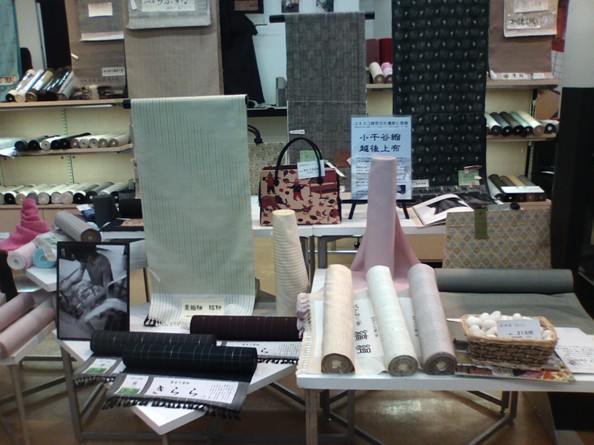 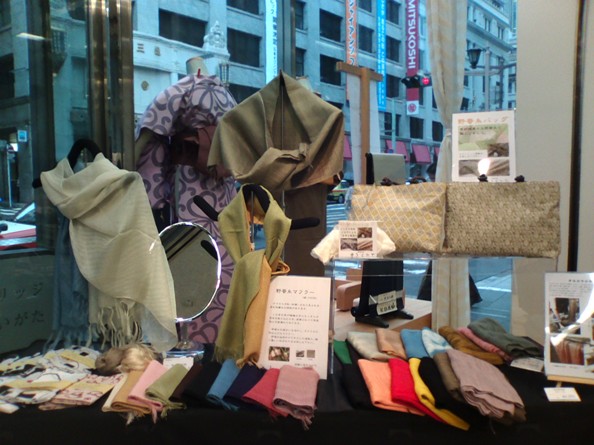 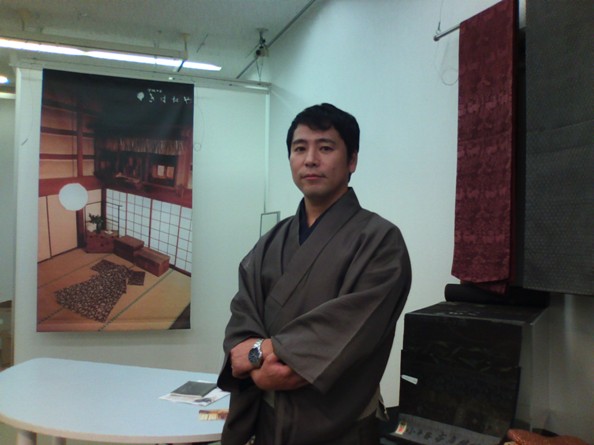
I spoke to Mr. Iwata of "Kihadaya". The advantage of being able to exhibit and sell at this venue is that you can communicate slowly with customers, so more than half of them come here are regular customers. Also, the kimono on display here is more like kimono lovers enjoy wearing it rather than formal. It was a wonderful space that I wanted when I saw it.
[Mumin]
June 19, 2013 14:00
We visited Nihonbashi Honmachi to visit Ozu Washi-san, a long-established Japanese paper company founded in 1653.
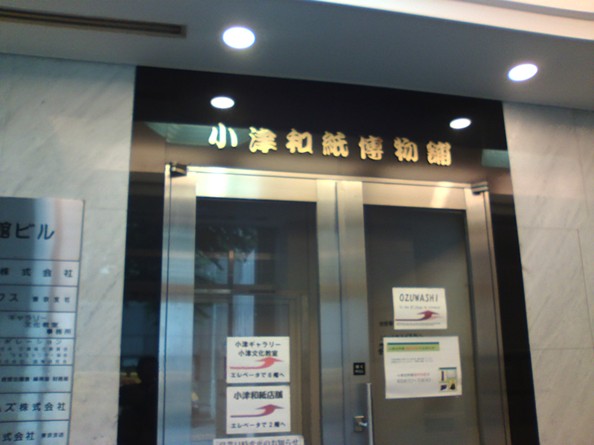
Director Matsuura of the Ozu Archives, Mr. Nakamura, in charge of the gallery and cultural classroom, responded comfortably.
Currently, this building is under seismic construction, so the historical archives and galleries are being reduced and exhibited.
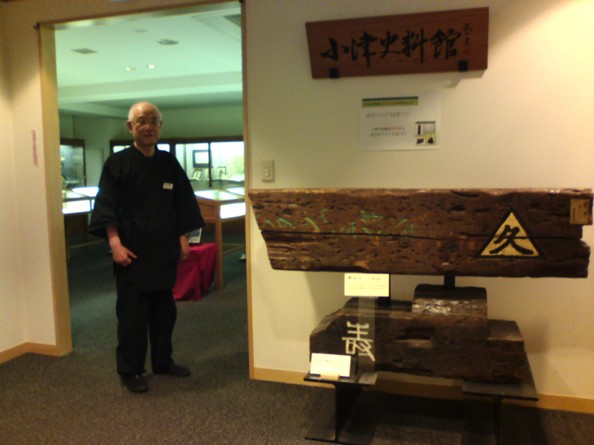
Director
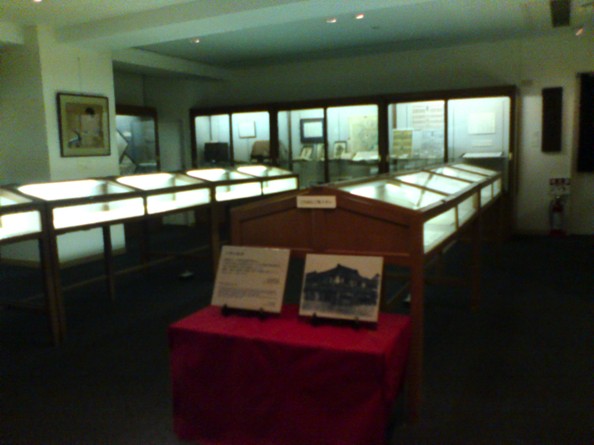
Inside the museum
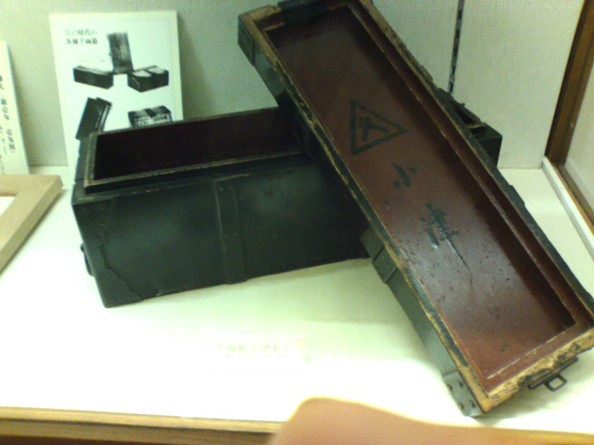
Thousand boxes (used in the Edo period) If you put a thousand cars in this box, it weighs about 20 kg.
The founder is from Ise-Matsusaka, and among his relatives, Motoori Norinaga, is also a Japanese literary scholar. However, in 1929, the founder of Ozu withdrew from the business. The president has been decided from among the employees. It seems that the current manager is the 17th generation. The photo below shows the Ozu founding family tree.
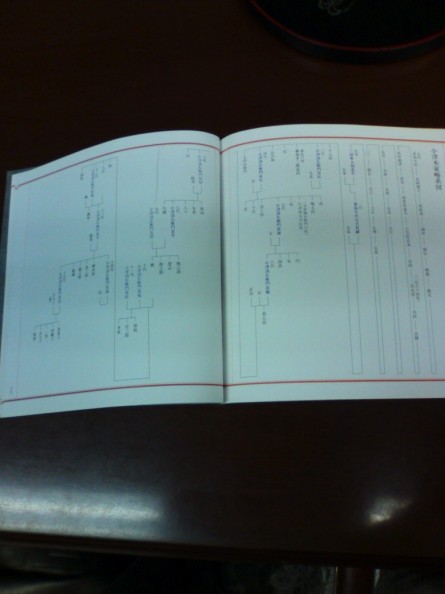
The production areas of Japanese paper are mainly Echizen, Tosa and Mino.
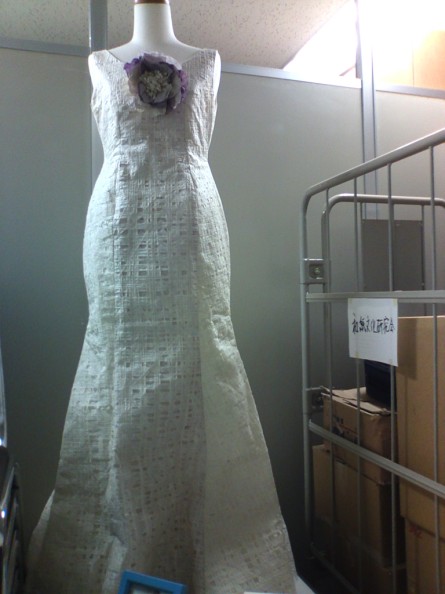
Recently, the needs of Japanese paper have become scarce, so most Japanese paper producers are their families alone.
In the hall, a creative weden dress made of wonderful Japanese paper is displayed.
[Mumin]
April 23, 2013 10:00
 On the other side of the main street of Kabukiza, there is a shop of Gunma General Information Center "Gunma-chanya". Here, there are about 700 items such as selected specialty products in the prefecture (sweets, alcohol, agricultural products, folk crafts, crafts, beauty products, goods). On the other side of the main street of Kabukiza, there is a shop of Gunma General Information Center "Gunma-chanya". Here, there are about 700 items such as selected specialty products in the prefecture (sweets, alcohol, agricultural products, folk crafts, crafts, beauty products, goods).
Vegetables and popular products are said to be sent from Gunma Prefecture every day.
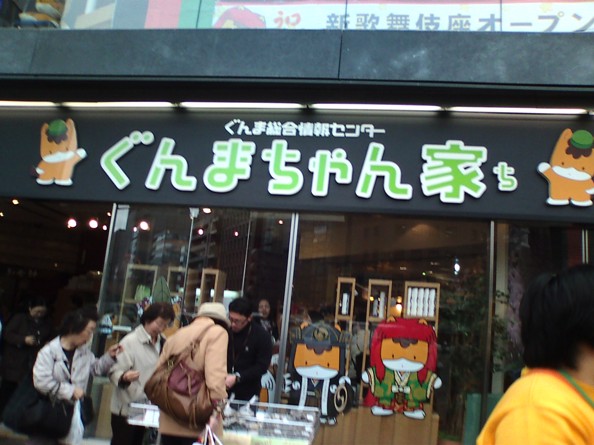
The Kabukiza effect is outstanding, and for two weeks since the opening of the Kabukiza on April 2, nearly three times the number of customers before the opening came to the store. Even now, the number of visitors is almost doubled.
The first floor has specialty products, and the second floor has event information on Gunma Prefecture, photo exhibitions, and an inn introduction corner. What surprised me was that Oze no Sato Katashina Village will be in full bloom in the future. I wanted to go, too.
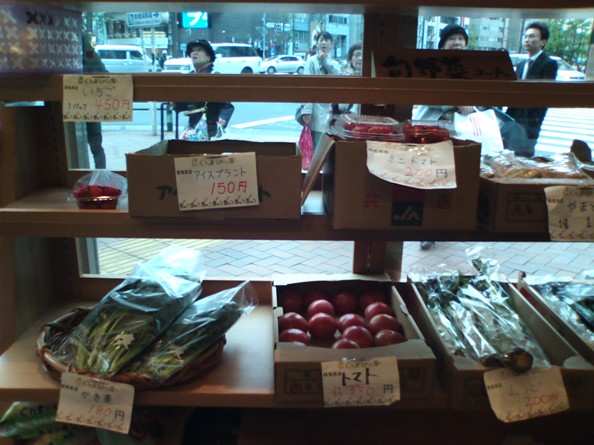
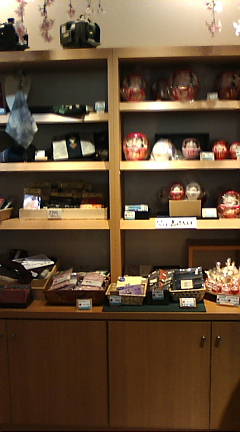 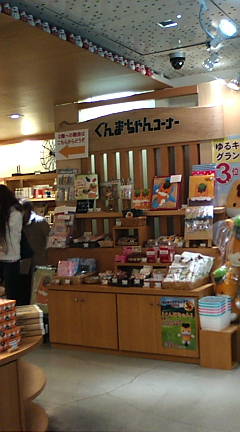  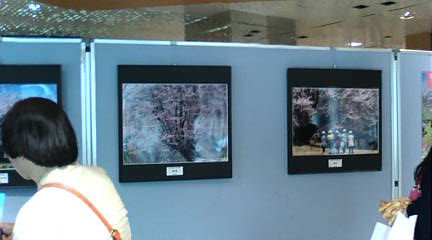
When I visited, the mascot character "Gunma-chan" was waving in front of the shop. Lucky!
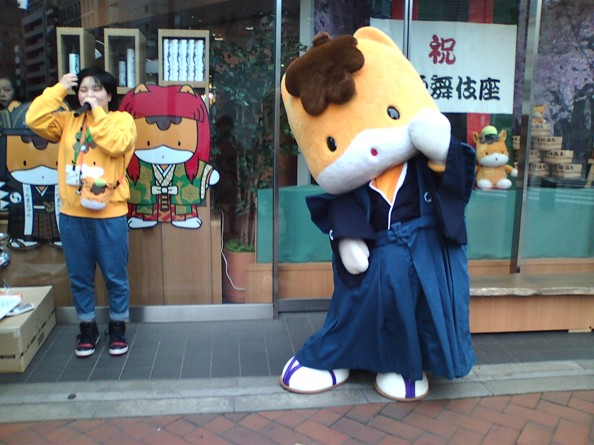
[Mumin]
March 30, 2013 10:00
Around this time, high-rise apartments were built one after another in the neighborhood where I live, and there were no vacant lots, so stray cats disappeared. One day I was called out by a woman. The woman, who had felt sympathy with stray cats for more than 20 years in the vicinity, fed by several OLs in the neighborhood, rubbed traces, and asked the veterinary clinic for care, contraception, castration, etc. of sick cats. Was one of the people who were asking. A few years ago, the cost of birth control and neutering of stray cats has been paid out in Chuo-ku.
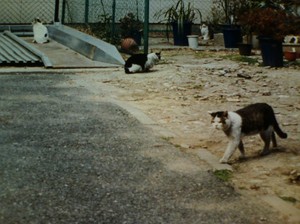 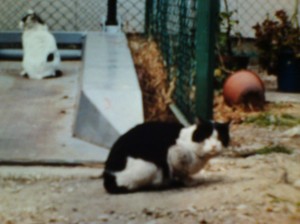
[Photo about 10 years ago]
At present, there are 1 or 2 stray cats in Suiten Miyaura, so they seem to be careful about the health of their cats. For more than 20 years, the girl, who was a stray cat, got sick, so she has been living together in her room. My name is Nene.
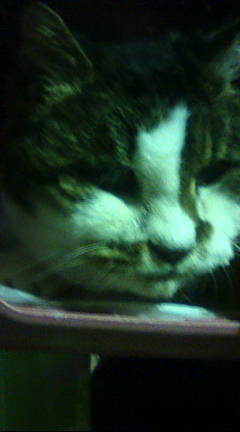
[Nene-chan]
Even if a domestic cat gets sick, the cost of treatment increases, so some people throw it away, so the heart to take care of it because it is sick has become very warm. I saw a rat running several times a year. I thought this was because there were fewer outside cats.
[Mumin]
February 27, 2013 08:30
This shrine is located at the back of the bicycle parking lot next to the alley of the apartment where the washing machine and dryer are located. The imbalance is strange. (1-6-11 Horidome-cho)
   
The shrine originated in 1617, Jinnemon Shoji, a ronin of the Hojo family, who was called the grandfather of the Hojo family, and several other temporary residences, recommended enshrined deity from Fushimi Inari, Kyoto, and was enshrined as guardian angel.
It is said that this name was given because the first Danjuro Ichikawa came and succeeded, and since the name was raised, many merchants and performing arts were introduced from this religion.
It is said that the current main hall was built by reusing waste from the former worship hall of Sugimori Shrine after the Great Kanto Earthquake, and Iwashiro Inari Shrine in Iwashiromachi (later merged with Horidome Town) is also enshrined.
It is Danjuro Ichikawa, the 12th generation Danjuro who passed away on February 3, reminiscent of the first Danjuro Ichikawa. I wish you all the best of your happiness.
[Mumin]
January 7, 2013 16:10
January 3 As a member of the support staff of Hakone Ekiden, we gathered around the street of Cored Nihonbashi at 9:00 am. The crowd was sparse.
At 10:00 am, a lion dance was performed with a musical accompaniment in front of Cored Nihonbashi.
When I walked a little around the area, boxes containing things like baseball balls lined up on both sides of Nihonbashi Bridge.
When I touched the chot, I felt something like mold. There was a man in the middle of the bridge who seemed to be involved with this ball, so when I asked, the contents of this ball were made of bacteria and thrown into the river to decontaminate the river. It is said that it will throw it into the river after about an hour, so it was already over when I went to see it in about an hour. I'm sorry!
At the foot of the bridge in Nihonbashi, there was a tent with several long-established stores selling lucky bags.
Near 12 o'clock the traffic increased, but it felt less than last year. While eating verses at home
I thought it would be better to watch the marathon on TV.
Near 1:20 pm, the first day-sized runner passed. A moment. After that, the following runners ran away one after another. Thank you very much. This year, the event on January 3 of the last few years has ended. May it be a good year!











|
Links
|
















